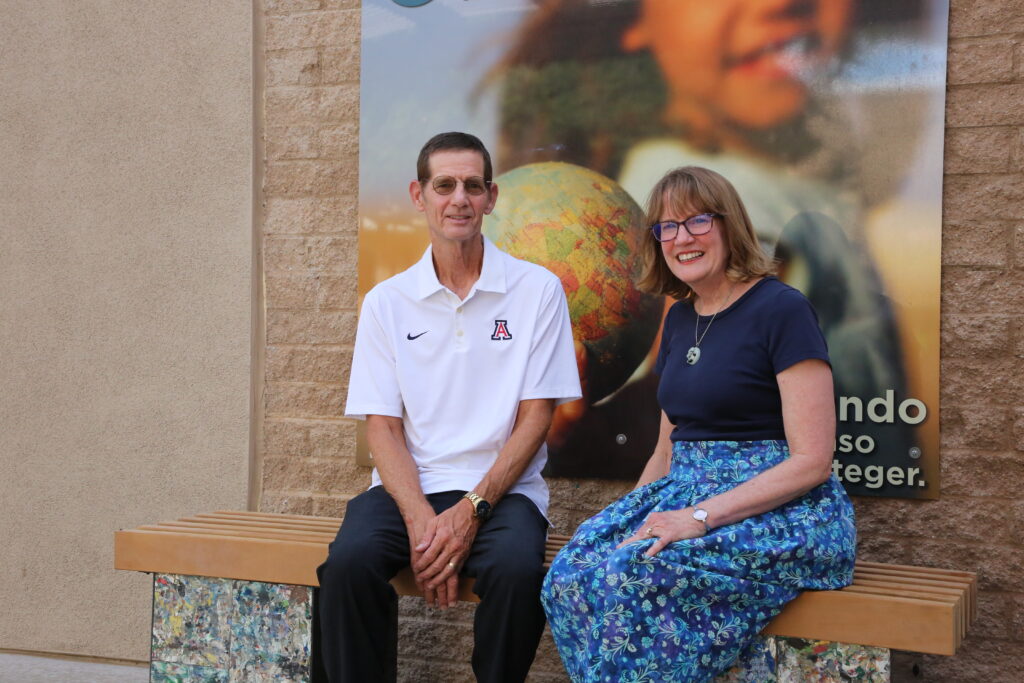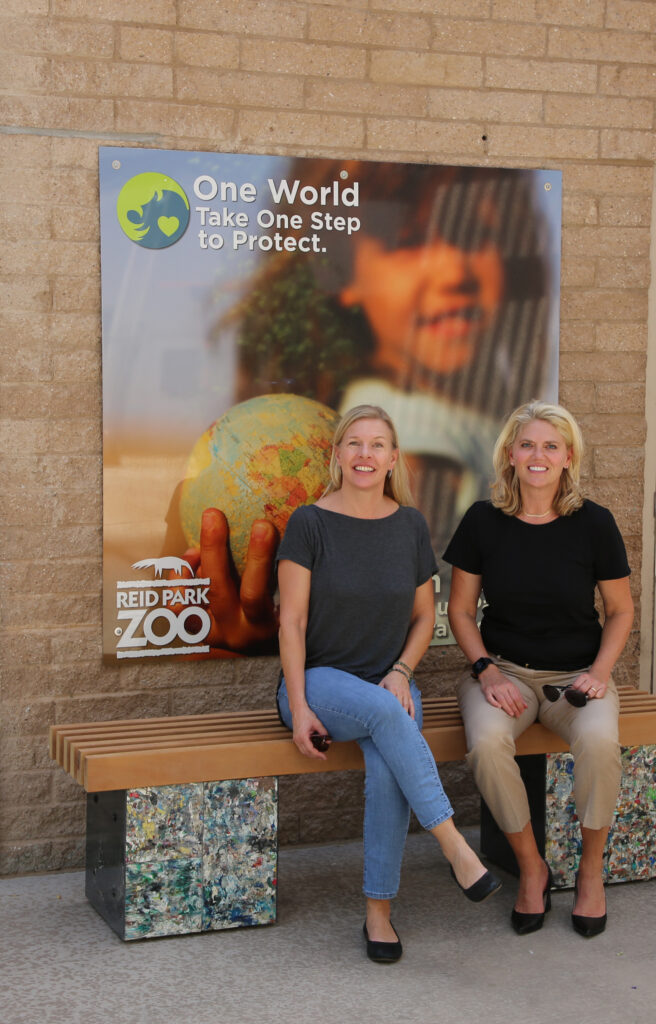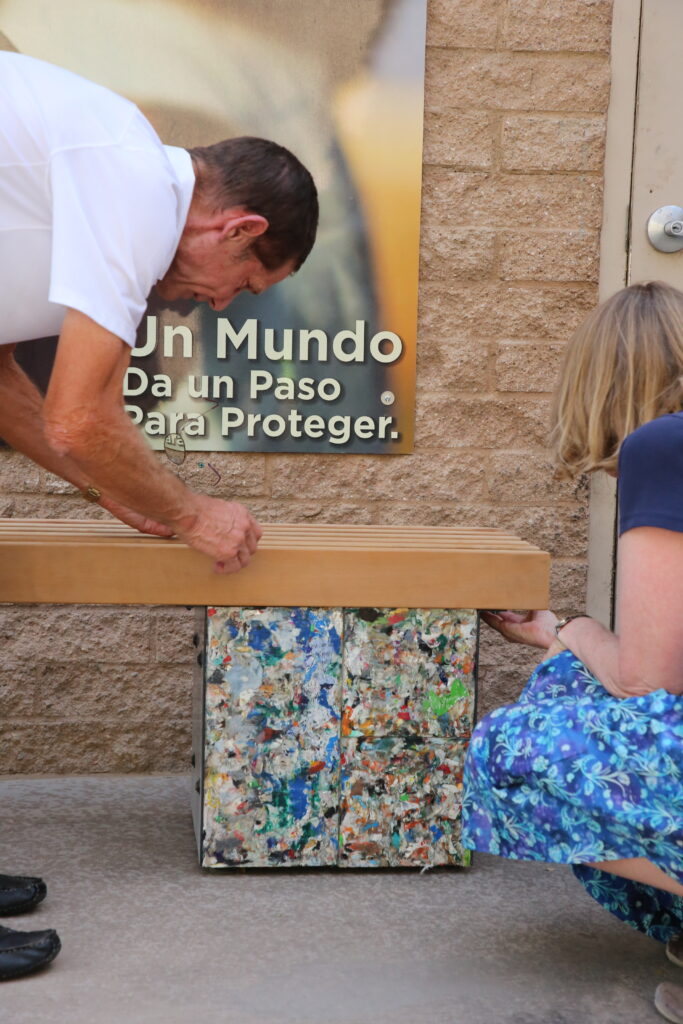New Bench Made of Repurposed Plastic Donated to Reid Park Zoo

 See the plastic diversion program in action!
See the plastic diversion program in action!
Vice Mayor Steve Kozachik and ByFusion Global Incorporated CEO Heidi Kujawa have donated a new ByFusion bench to Reid Park Zoo that will serve as a visible illustration of the impact that happens when the community works together on plastics reduction and conservation.
The decorative Zoo bench has eight blocks which represents 175 pounds of plastic. All of the plastic used in the Zoo bench was diverted from the landfill by Tucson residents.
The bench was crafted by Gardena-California based ByFusion Global Incorporated. The company takes non-recyclable plastics and turns them into 22 pound construction-grade building blocks, called ByBlocks. The creations made by ByFusion are somewhat like 22 pound interlocking Lego’s. The ByBlocks have passed building certifications, and are already being used to construct a variety of things, including tiny homes. There is a 660 square foot home in Flagstaff made with the blocks, and here in Tucson, a new 800 square-foot tack room for Therapeutic Riding of Tucson (TROT) and 72-foot mural wall at Mission Gardens are being designed using the blocks. The blocks are also planned for perimeter walls around trash enclosures, designing pickleball courts, and for raised planters at locations around Tucson.
“If something can be made with cinder blocks, it can be made with ByBlocks, helping to reduce plastic pollution,” says Kozachik.
 Tucson has signed a service agreement with ByFusion who will be moving an operation to Tucson in 2024 housed at the Los Reales Sustainability Campus as its anchor tenant. Once the business is up and running next year, Tucson will be the first city on the planet to have taken the concept of using non-recyclable plastic, launching a fabrication operation and supporting the ByFusion operation.
Tucson has signed a service agreement with ByFusion who will be moving an operation to Tucson in 2024 housed at the Los Reales Sustainability Campus as its anchor tenant. Once the business is up and running next year, Tucson will be the first city on the planet to have taken the concept of using non-recyclable plastic, launching a fabrication operation and supporting the ByFusion operation.
“Tucson is the only city on the planet that is aggressively working on a solution to the plastic pollution that we all see on the sides of the road, filling landfills and killing marine wildlife. Tucson is leading, and our partners at Reid Park Zoo now have a front row seat for their guests to see what can be done reusing the non-recyclable plastic, and to be a part of the exciting solution we’re promoting,” says Kozachik.
Reid Park Zoo is actively involved in environmental conservation through programs that encourage consumers to refuse, reuse and repurpose plastics, among other land and animal preservation efforts. The Zoo participates in the national Plastics-Free Eco Challenge each July engaging the Tucson community to join its team and take action to reduce single-use plastics such as avoiding straws and shopping bags. This year, the Zoo’s team ranked 8th out of 224 teams for results.
“I’m grateful to the leadership at Reid Park Zoological Society, the staff, and of course the volunteers at the Zoo who will now not only be ambassadors for wildlife conservation, but also environmental conservation and reuse through promoting the plastic reuse, ByFusion project this bench represents,” adds Kozachik.
For more information about Reid Park Zoo and its conservation programs, visit ReidParkZoo.org. For more information on ByFusion, visit their website at www.byfusion.com.
